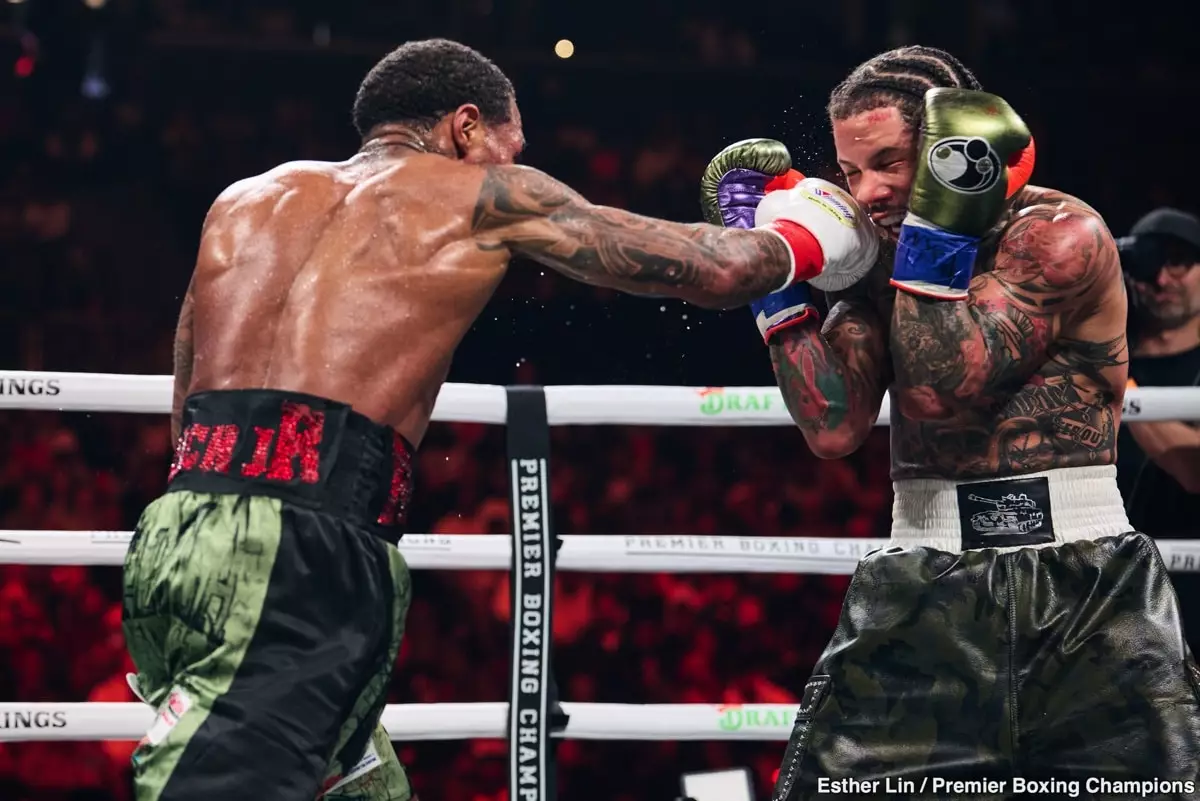In the unforgiving arena of professional boxing, a fighter’s legacy stands as both a precious artifact and a fragile construct. The recent bout between Gervonta “Tank” Davis and Lamont Roach on March 1st at the Barclays Center has become a focal point of controversy, calling into question not just Davis’s skills but the very foundation of his reputation. Commentator Darren Barker incisively pointed out that Davis may have undermined his legacy by taking a controversial timeout in the ninth round to address an issue with grease in his eyes—a maneuver that ostensibly felt out of place in the brutal world of boxing.
To what extent can Davis’s actions be interpreted as a sign of mental or physical decline? By choosing to pause the action, Davis gave the world a glimpse of vulnerability—a trait seldom seen in elite competitors. In an environment where fighters are taught to push through adversity, this call for a timeout signifies a crack in his armor. There are unwritten rules in boxing, and one of those is that fighters are expected to battle through discomfort and distraction, not call for assistance during a fight.
The Referee’s Oversight: A Turning Point
The bout’s officiating added another layer of complexity. Many believe that referee Steve Willis’s failure to recognize Davis’s knee before the timeout as a knockdown was a misstep that tilted the outcome. By neglecting this pivotal moment, he altered the fight’s course; instead of a potential 10-8 round for Roach, the result morphed into a 12-round majority draw, sparing Davis from the ignominy of defeat. The boxing community is rife with discussions questioning the impartiality and effectiveness of officiating—what would have happened if the call had been made correctly? The consequences could have reshaped the landscape of the lightweight division and Davis’s career trajectory.
Moreover, the very act of Davis retreating to his corner to have his trainer wipe the grease calls forth strong opinions. Barker stated, “I’ve never known fighters to call their own timeout,” a sentiment echoed by many in the boxing world who are uncomfortable with what this says about Davis’s current mindset. It raises the question: Is Davis nearing the end of his career? Fighters often grapple with their mortality in the ring, and this fight raises alarms about whether he still possesses the ferocity and drive that defined his previous bouts.
The Fans and Public Perception
Beyond the technicalities of the rules, the emotional undercurrents run deep. Fan perception is a double-edged sword, and how Davis’s performance is interpreted could have lasting implications. Many viewers left the arena with a sense that Davis did not truly emerge victorious—a feeling exacerbated by the pervasive narrative that he might have lost to Roach had the call gone the other way. This is a significant blow to his public image and marketability. Once hailed as a rising star, Davis now stands at a crossroads, scrutinized not just for his ability to throw punches but for the strength of his character when faced with adversity.
In an age where the internet sizzles with instantaneous criticism and opinion, the disconnect between Davis’s past triumphs and current vulnerabilities is stark. Fans are quick to question whether the fire that once fueled his success is dimming. Has the relentless quest for greatness evolved into a quest for maintenance, and what does this mean for a sport built on the ethos of resilience and the unyielding spirit to keep pushing forward? Only time will tell if Gervonta Davis can reclaim his narrative and restore the confidence of the boxing community.

